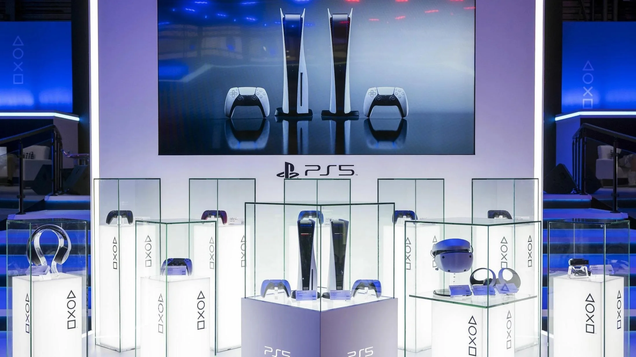






 Posted by msmash from Slashdot
Posted by msmash from Slashdot
From the facing-the-music department: An anonymous reader shares a report: U.K. retail giant Marks & Spencer has confirmed hackers stole its customers' personal information during a cyberattack last month. In a brief statement with London's stock exchange on Tuesday, the retailer said an unspecified amount of customer information was taken in the data breach.
The BBC, which first reported the company's filing, cited a Marks & Spencer online letter as saying that the stolen data includes customer names, dates of birth, home and email addresses, phone numbers, household information, and online order histories. The company also said it was resetting the online account passwords of its customers. FT adds: Marks and Spencer could claim for losses of as much as $133 million from its cyber insurers following a sustained hack where some customer data was stolen. The UK retailer's cyber policy allows it to claim up to $133 million, according to people familiar with the situation.
Allianz is the first insurer on the hook for M&S's losses, the people added, and is expected to pay at least the initial $13.3 million. Cyber specialist Beazley is also among the insurers exposed to losses at the FTSE 100 retailer, according to the people familiar with the situation.







 Posted by BeauHD from Slashdot
Posted by BeauHD from Slashdot
From the super-materials department: Longtime Slashdot reader ndsurvivor shares a report from TechCrunch: In 2018, Liangbing Hu, a materials scientist at the University of Maryland, devised a way to turn ordinary wood into a material stronger than steel. It seemed like yet another headline-grabbing discovery that wouldn't make it out of the lab. "All these people came to him," said Alex Lau, CEO of InventWood, "He's like, OK, this is amazing, but I'm a university professor. I don't know quite what to do about it."
Rather than give up, Hu spent the next few years refining the technology, reducing the time it took to make the material from more than a week to a few hours. Soon, it was ready to commercialize, and he licensed the technology to InventWood. Now, the startup's first batches of Superwood will be produced starting this summer. "Right now, coming out of this first-of-a-kind commercial plant -- so it's a smaller plant -- we're focused on skin applications," Lau said. "Eventually we want to get to the bones of the building. Ninety percent of the carbon impact from buildings is concrete and steel in the construction of the building." To build the factory, InventWood has raised $15 million in the first close of a Series A round. The round was led by the Grantham Foundation with participation from Baruch Future Ventures, Builders Vision, and Muus Climate Partners, the company exclusively told TechCrunch. How do they do it? According to TechCrunch, InventWood's Superwood is made by treating regular timber with "food industry" chemicals to remove lignin and modify its structure, then compressing it to increase hydrogen bonding between cellulose fibers. This densification makes the wood up to 10 times stronger than natural wood, with a higher strength-to-weight ratio than steel. "You end up with something that looks like these richer, tropical hardwoods," Lau added.







 Posted by BeauHD from Slashdot
Posted by BeauHD from Slashdot
From the next-gen-tech department: General Motors is partnering with LG to develop lithium manganese-rich (LMR) batteries, which are safer, denser, and cheaper than current EV battery tech. The automaker aims to begin U.S. production by 2028 and become the first to deploy LMR cells in electric vehicles. Ford also announced it would start adopting LMR batteries for its EVs, but not until 2030. The Verge reports: GM's current crop of electric Chevys and Cadillacs use high-nickel batteries, which supply enough energy for around 300-320 miles of range. The new LMR batteries are denser, with greater space efficiency due to their prismatic shape, enabling up to 400 miles of range, GM says. Prismatic cells are packed flat in rigid cases and are generally thought to be less complex to manufacture than cylindrical cells. Less complexity and cheaper materials will hopefully lead to lower-cost EVs, which has been a significant challenge for the auto industry's shift to electric vehicles. "The EV growth rate is really dependent on how quickly we can bring the costs down over time," says GM's VP for batteries Kurt Kelty. "And this is the biggest lever we have. Batteries make up roughly 30 to 40 percent of the cost of vehicles. And if you can drop that down significantly like we're doing here, then it ends up being a lower cost to the consumer."



 I just threw half a pint of Cherry Pepsi Max across my keyboard. It was the penultimate keyboard I’ll ever be able to use. I’m down to my last one.
I just threw half a pint of Cherry Pepsi Max across my keyboard. It was the penultimate keyboard I’ll ever be able to use. I’m down to my last one.
 Square Enix has finally given up on its Pokémon GO-style mobile spin-off of Kingdom Hearts. The Final Fantasy publisher announced on Wednesday that it was cancelling Kingdom Hearts Missing-Link, which began development back in 2019, because it didn’t think it could deliver on the live-service experience over the long…
Square Enix has finally given up on its Pokémon GO-style mobile spin-off of Kingdom Hearts. The Final Fantasy publisher announced on Wednesday that it was cancelling Kingdom Hearts Missing-Link, which began development back in 2019, because it didn’t think it could deliver on the live-service experience over the long…
 All eyes have been on Sony to see if it follows in Microsoft’s footsteps and, in response to increased U.S. tariffs, dramatically raises the price of the PlayStation 5 . The company confirmed to investors on Wednesday that it might end up doing exactly that as it faces a potential $680 million hole in its bottom line…
All eyes have been on Sony to see if it follows in Microsoft’s footsteps and, in response to increased U.S. tariffs, dramatically raises the price of the PlayStation 5 . The company confirmed to investors on Wednesday that it might end up doing exactly that as it faces a potential $680 million hole in its bottom line…









